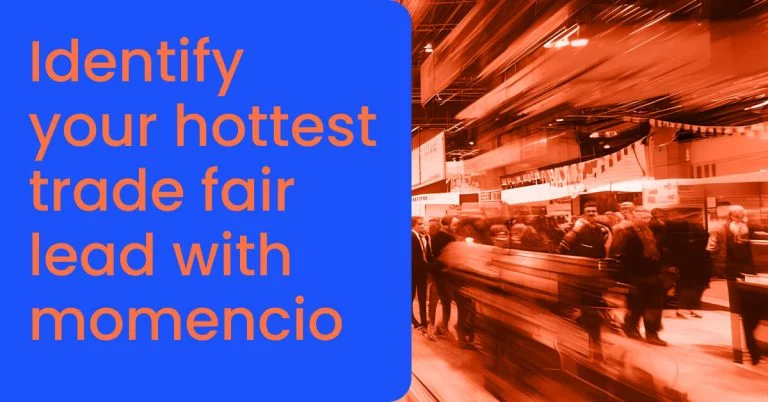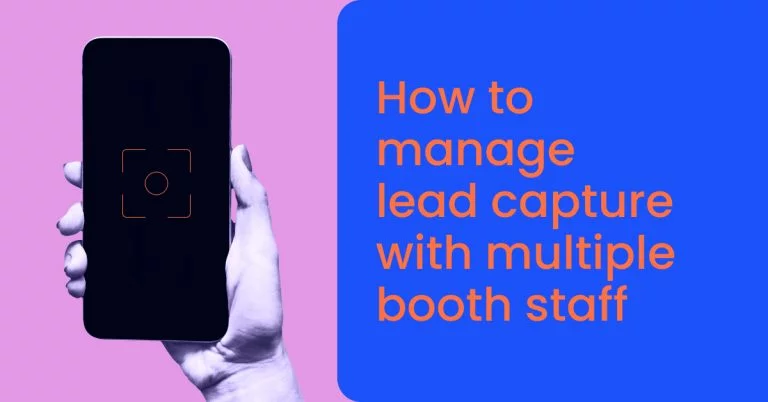Event badge scanners are becoming indispensable tools for event organizers, providing a seamless and efficient way to capture and manage attendee data. These devices play a critical role in modern event management, helping to streamline operations, enhance attendee engagement, and provide valuable insights through real-time data analytics. According to a report by EventMB, over 60% of event professionals believe that badge-scanning technology significantly improves the efficiency of their events.
To help event professionals understand the value and functionality of event badge scanners, this article delves into what these devices are, how they work, their benefits, and how to implement them at your next event effectively. By leveraging the right technology, event planners can ensure a smooth check-in process, capture vital attendee information effortlessly, and maximize their event’s ROI.
Understanding event badge scanners
Event badge scanners are crucial tools in modern event management, providing an efficient and accurate method for capturing and managing attendee information. These devices streamline various aspects of event operations, from check-in to lead generation and post-event analysis. Here’s a comprehensive look at what event badge scanners are, their types, and their key features.
What are event badge scanners?
Event badge scanners are devices used to read and capture information encoded on badges worn by event attendees. These badges typically include QR codes, barcodes, or RFID (Radio Frequency Identification) chips that store essential attendee details. When an attendee’s badge is scanned, the device retrieves this data. It transmits it to a central database, allowing event organizers to track attendance, manage leads, and analyze engagement in real-time.
Types of event badge scanners
- Handheld scanners: Handheld scanners are portable devices used by event staff to scan badges at various points during an event. They are ideal for situations where mobility is necessary, such as at entrance gates, session rooms, or exhibit booths. These scanners are often ergonomic and user-friendly, designed to capture data quickly and accurately.
- Mobile app-based scanners: These scanners leverage the camera functionality of smartphones or tablets to scan badges. Mobile app-based scanners are a cost-effective solution, as they utilize devices that staff members might already own. They are particularly useful for smaller events or for additional scanning points where deploying dedicated hardware may not be feasible.
- Stationary kiosks: Stationary kiosks are fixed scanning stations placed at strategic locations, such as registration areas or entry points. Attendees can self-scan their badges at these kiosks, which reduces the need for extra staff and speeds up the check-in process. These kiosks are often equipped with touchscreens and intuitive interfaces, enhancing user experience.
Event badge scanning apps like momencio may have different app modes; for example, momencio has booth and kiosk modes. In kiosk mode, attendees can read materials, provide their information, or scan their badges if they want, and send digital materials to themselves.
- Wearable scanners: Wearable scanners are devices worn by staff members or attendees, enabling hands-free badge scanning. These can be particularly useful in dynamic environments where quick and unobtrusive scanning is required, such as during networking events or in busy exhibition halls.
Key Features of Event Badge Scanners
- Instant data capture: Event badge scanners are designed to capture attendee information swiftly and accurately. This instant data capture minimizes errors and ensures that all relevant details are recorded.
- Real-time data transmission: The data captured by badge scanners is transmitted in real-time to the event management software. This allows for immediate access to attendee information and up-to-date analytics, facilitating better decision-making during the event.
- Integration capabilities: Modern event badge scanners can seamlessly integrate with various event management platforms, CRM systems, and marketing automation tools. This integration ensures that all captured data is synchronized across different systems, providing a comprehensive view of attendee interactions.
- User-friendly interface: Badge scanners come with intuitive interfaces that are easy for staff and attendees to use. This reduces the training time required and enhances the efficiency of the scanning process.
- Customizable scanning options: Depending on the specific needs of the event, badge scanners can be configured to capture different types of data, such as session attendance, booth visits, or specific lead qualification criteria.
- Enhanced security: Advanced badge scanners employ robust encryption methods to ensure that the data transmission is secure, protecting sensitive attendee information from unauthorized access.
How event badge scanners work
Event badge scanners are integral to the seamless management of event logistics and attendee engagement. Understanding how these devices function can help event organizers leverage their full potential. This section will delve into the scanning process, integration with event management software, and how data capture and synchronization are achieved.
The scanning process
- Badge presentation: When an attendee arrives at an event, they present their badge, which contains a QR code, barcode, or RFID chip. These identifiers are encoded with the attendee’s registration details, such as their name, company, job title, and any additional information collected during the registration process.
- Data capture: The badge scanner reads the encoded information. QR codes and barcodes are done using an optical scanner or a mobile device’s camera. For RFID chips, the scanner uses radio waves to read the chip’s data. This process is quick, usually taking just a few seconds per attendee.
- Data transmission: Once the data is captured, it is immediately transmitted to a central database via Wi-Fi, Bluetooth, or a cellular network. This transmission is secure and encrypted to protect sensitive information. The centralized system stores the data and makes it accessible for real-time analysis.
Integration with event management software
Event badge scanners do not operate in isolation. They are integrated with comprehensive event management software to provide a seamless experience and maximize the utility of the captured data. Here’s how this integration works:
- Software syncing: The event management software syncs with the badge scanners, allowing real-time data flow between the devices and the central system. This ensures that all data captured by the scanners is immediately available in the event management dashboard.
- Real-time analytics: With data flowing in real-time, event organizers can access up-to-date information on attendee check-ins, session attendance, and booth visits. This allows for immediate decision-making and adjustments to event logistics if necessary.
- Automation: The integration facilitates automated processes, such as sending personalized welcome messages or session reminders to attendees as soon as their badge is scanned. This enhances attendee engagement and ensures a smooth event experience.
Data capture and synchronization
The efficiency of event badge scanners is greatly enhanced by their ability to capture and synchronize data accurately and quickly. Here’s how this is achieved:
- Centralized database: All data captured by the scanners is stored in a centralized database, which event organizers and other authorized personnel can access. This centralization ensures that there is a single source of truth for all attendee information.
- Data enrichment: The basic data captured from badges can be enriched with additional information gathered from other touchpoints, such as session participation, booth visits, and survey responses. This provides a more comprehensive view of each attendee’s engagement and interests.
- Synchronization across platforms: The centralized database syncs with various platforms, such as CRM systems, marketing automation tools, and event apps. This ensures that all data is consistent and up-to-date across all systems, enabling better coordination and more effective follow-up strategies.
- Real-time updates: Synchronization occurs in real-time, meaning that any changes or new data captured are immediately reflected across all integrated systems. This allows event organizers to monitor the event’s progress and attendee engagement continuously.
- Reporting and analytics: The synchronized data is used to generate detailed reports and analytics, providing insights into attendee behavior, session popularity, and overall event performance. These insights are invaluable for post-event analysis and future event planning.
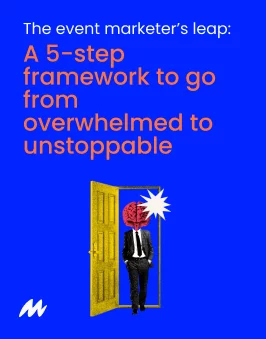
Key components of badge scanning systems
- Scanner hardware: Depending on the type, this could be handheld devices, mobile phones with scanning apps, stationary kiosks, or wearable tech. Each type of hardware has its specific use case and advantages.
- Connectivity: Reliable internet connectivity (Wi-Fi, Bluetooth, or cellular) is crucial for real-time data transmission. The system needs to be robust enough to handle high volumes of data without delays or losses.
- Event management software: This software is the backbone that integrates with the scanners, centralizes data, and provides tools for analytics and reporting. It often includes features for registration, scheduling, attendee tracking, and engagement.
- Security protocols: Ensuring that data transmission and storage are secure is paramount. Encryption and secure communication channels are used to protect sensitive attendee information.
By understanding how event badge scanners work and integrating them effectively into your event management system, you can significantly enhance the efficiency and effectiveness of your event operations. This not only improves the attendee experience but also provides valuable data for optimizing future events.
Benefits of using event badge scanners
Event badge scanners provide a myriad of advantages that enhance the overall efficiency and effectiveness of event management. By automating the process of capturing attendee information, these devices offer numerous benefits that improve both operational logistics and attendee experiences. Here are some of the key benefits:
Efficient lead capture
- Speed and accuracy: Event badge scanners quickly and accurately capture attendee information, minimizing the errors associated with manual data entry. This ensures that all relevant details are recorded correctly and promptly, which is crucial for lead generation and follow-up.
- Automation: The scanning process is automated, reducing the need for additional staff to collect and input data manually. This allows event organizers to allocate their resources more efficiently and focus on other critical aspects of the event.
- Immediate data availability: The data captured by badge scanners is instantly available for real-time analysis and reporting. This immediate access to information enables event organizers to make quick decisions and respond to attendees’ needs on the fly.
Enhanced attendee tracking
- Real-time monitoring: Badge scanners allow for real-time tracking of attendee movements and interactions throughout the event. This provides organizers with insights into which sessions are most popular, which booths attract the most visitors and overall attendee engagement levels.
- Personalized engagement: With detailed information about attendee behavior, event organizers can tailor their engagement strategies to meet the specific interests and needs of each attendee. Personalized follow-up emails, targeted content, and customized interactions can significantly enhance attendee satisfaction and retention.
- Behavioral insights: Analyzing the data collected through badge scanners can reveal valuable insights into attendee preferences and behaviors. This information can be used to improve future events, optimize session scheduling, and enhance the overall event experience.
Real-time data and analytics
- Instant reporting: The real-time nature of data capture means that event organizers can generate instant reports on various aspects of the event. These reports provide a comprehensive overview of attendance, engagement, and other vital metrics.
- Informed decision-making: Access to real-time data allows event organizers to make informed decisions during the event. Whether it’s adjusting session schedules, reallocating resources, or addressing attendee concerns, having accurate and up-to-date information is invaluable.
- Post-event analysis: The data collected by badge scanners is not only useful during the event but also critical for post-event analysis. Organizers can evaluate the success of the event, identify areas for improvement, and plan more effectively for future events.
Improved operational efficiency
- Streamlined check-in: Badge scanners streamline the check-in process, reducing wait times and ensuring a smooth entry for attendees. This enhances the first impression and overall experience for attendees, setting a positive tone for the rest of the event.
- Resource optimization: By automating data capture and tracking, badge scanners free up staff to focus on other essential tasks. This optimization of resources can lead to significant cost savings and improved operational efficiency.
- Compliance and security: Advanced badge scanners ensure that all attendee information is captured and stored securely, complying with data protection regulations. This reduces the risk of data breaches and enhances the trust of attendees.
Enhanced networking opportunities
- Efficient lead retrieval: Exhibitors and sponsors can use badge scanners to capture lead information from attendees who visit their booths quickly. This makes it easier to follow up with potential clients and convert leads into sales.
- Networking insights: Badge scanners provide insights into attendee interactions, helping organizers facilitate better networking opportunities. By understanding who interacted with whom, organizers can create more effective networking sessions and matchmaking opportunities.
- Post-event follow-up: Detailed attendee data allows for more personalized and effective post-event follow-up. Organizers can send targeted emails, schedule meetings, and provide relevant content to keep attendees engaged and interested even after the event has ended.
Increased ROI
- Maximized lead potential: By capturing accurate and comprehensive data, event badge scanners ensure that every lead is noticed. This maximizes the potential for converting leads into customers, directly impacting the event’s ROI.
- Enhanced sponsor and exhibitor value: Providing sponsors and exhibitors with detailed data on attendee interactions enhances their ability to measure ROI and justify their investment in the event. This can lead to increased satisfaction and repeat participation.
- Optimized event strategy: The insights gained from data captured by badge scanners enable organizers to maximize their event strategy, improving future event planning and execution. This continuous improvement cycle contributes to higher ROI over time.
Check out 10 Best lead capture tools for trade shows
By leveraging the capabilities of event badge scanners, organizers can significantly enhance the efficiency, effectiveness, and overall success of their events. The real-time data and insights provided by these devices enable better decision-making, improved attendee engagement, and increased ROI, making them an indispensable tool in modern event management.
Implementing badge scanners at your event
Implementing badge scanners at your event requires careful planning and execution to ensure they operate effectively and deliver the desired benefits. This section will guide you through the steps to choose the right scanner, set up the system, and train your staff.
Choosing the right scanner
Selecting the appropriate badge scanner for your event is crucial. Consider the following factors to make an informed decision:
- Type of event:
- Conferences and trade shows: Handheld and mobile app-based scanners are ideal for these events due to their portability and ease of use.
- Large-scale events: Stationary kiosks or wearable scanners can handle high volumes of attendees efficiently.
- Budget:
- Determine your budget and select scanners that offer the best features within your price range. While stationary kiosks may be more expensive, they can handle large crowds and provide self-service options, reducing staffing costs.
- Integration capabilities:
- Ensure that the scanners you choose can integrate seamlessly with your existing event management software, CRM, and other tools. This will facilitate smooth data flow and comprehensive analytics.
- User-friendliness:
- Choose scanners with intuitive interfaces and easy-to-use functionalities. This will minimize the training time required for your staff and enhance the overall efficiency of the scanning process.
- Technical support:
- Opt for scanners from reputable vendors who offer reliable technical support and maintenance services. This ensures that any issues can be quickly resolved, minimizing disruptions during the event.
Setting up the system
Proper setup of your badge scanning system is essential for smooth operation during the event. Follow these steps to ensure a successful implementation:
- Pre-event testing:
- Conduct thorough testing of the scanners and the integration with your event management software well before the event. This helps identify and resolve any technical issues in advance.
- Network and connectivity:
- Ensure that your venue has reliable internet connectivity (Wi-Fi or cellular) to support real-time data transmission. Set up backup connectivity options to avoid disruptions.
- System configuration:
- Configure the scanners to capture the specific data you need, such as attendee check-ins, session attendance, or lead qualification details. Customize the settings to match your event’s requirements.
- Data security:
- Implement robust security measures to protect the data captured by the scanners. Use encryption and secure data transmission protocols to safeguard sensitive attendee information.
- Placement and accessibility:
- Strategically place stationary kiosks at high-traffic areas, such as entry points, session rooms, and exhibition booths. Ensure that handheld scanners and mobile devices are easily accessible to staff members throughout the venue.
Training staff
Properly trained staff are essential for the effective use of badge scanners. Provide comprehensive training sessions to ensure your team is well-prepared:
- Hands-on training:
- Conduct hands-on training sessions where staff can practice using the scanners in various scenarios, such as check-in, session entry, and lead capture at booths.
- Step-by-step guides:
- Provide detailed step-by-step guides and cheat sheets that staff can refer to during the event. These should cover everyday tasks, troubleshooting tips, and contact information for technical support.
- Role-specific training:
- Tailor training sessions to the specific roles of your staff. For example, train registration staff on quick and efficient check-in processes, while booth staff focus on lead capture and engagement.
- Customer service skills:
- Emphasize the importance of customer service skills, such as greeting attendees warmly, efficiently handling issues, and providing assistance with scanning. A positive interaction enhances the attendee experience.
- Ongoing support:
- Ensure that technical support is available throughout the event to assist staff with any issues that arise. Quick resolution of problems prevents disruptions and maintains smooth operations.
Best practices for implementation
Are you confident in your event lead capture process? Read about The importance of a robust event lead capture system.
- Plan for peak times:
- Anticipate peak times, such as the start of the event or popular sessions, and deploy additional staff and scanners to manage the increased volume of attendees efficiently.
- Clear signage:
- Use clear signage to direct attendees to scanning points and provide instructions on how to use self-service kiosks. This reduces confusion and speeds up the check-in process.
- Backup plans:
- Have backup scanners and contingency plans in place in case of technical failures. This ensures that operations can continue smoothly without significant disruptions.
- Monitor and adjust:
- Continuously monitor the performance of the scanning system and make adjustments as needed. Use real-time data to identify bottlenecks and optimize scanner placement and staffing.
By carefully selecting the right badge scanners, setting up the system properly, and training your staff effectively, you can ensure a seamless implementation that maximizes the benefits of this technology. Proper planning and execution will lead to a more efficient, engaging, and successful event.
Innovations and future trends in badge scanning technology
Badge scanning technology has evolved significantly, driven by advances in hardware, software, and integration capabilities. As event technology continues to develop, several innovations and trends are emerging that promise to enhance the efficiency and effectiveness of badge scanning at events. This section explores some of these key innovations and future trends.
Advances in badge scanning technology
- Near field communication (NFC):
- NFC technology allows for quick and contactless data transfer between the badge and the scanner. Attendees can tap their badges against an NFC-enabled device, making the process faster and more convenient.
- Biometric scanning:
- Incorporating biometric data, such as fingerprints or facial recognition, can enhance security and streamline the check-in process. This technology ensures that the badge is used by the correct individual, reducing the risk of fraudulent entries.
- Augmented reality (AR):
- AR can be used to provide additional information and enhance attendee engagement. For example, scanning a badge could trigger an AR display showing the attendee’s agenda, session recommendations, or interactive maps of the event venue.
- Blockchain technology:
- Blockchain can enhance the security and transparency of data management in badge scanning systems. It provides a tamper-proof ledger of all scanned data, ensuring integrity and trust in the captured information.
Enhanced Integration and Data Analytics
- AI-powered insights:
- Artificial intelligence can analyze the vast amounts of data captured by badge scanners to provide deeper insights into attendee behavior and event performance. AI algorithms can identify patterns, predict trends, and offer actionable recommendations for improving future events.
Want to know the future of trade shows?
- Seamless CRM integration:
- Advanced integration with CRM systems ensures that all attendee data is automatically synchronized, providing a comprehensive view of customer interactions and enabling more personalized follow-ups.
- Real-time analytics dashboards:
- Modern badge scanning systems offer real-time dashboards that provide live updates on attendance, engagement, and other key metrics. These dashboards help event organizers make informed decisions on the fly and adjust strategies as needed.
- Enhanced reporting tools:
- New reporting tools offer more detailed and customizable reports, allowing organizers to analyze specific aspects of their events in depth. These reports can be used to demonstrate ROI to stakeholders and plan improvements for future events.
Innovations in user experience
- Self-service kiosks:
- Self-service kiosks are becoming more sophisticated, offering multilingual support, personalized greetings, and interactive features. These kiosks can handle a high volume of attendees efficiently, reducing wait times and enhancing the attendee experience.
- Mobile app enhancements:
- Mobile apps used for badge scanning are continuously improving, with features such as offline scanning capabilities, instant data syncing when connectivity is restored, and integration with other event app functionalities like agendas and networking tools.
- Wearable technology:
- Wearable devices, such as smartwatches and smart badges, are being integrated with scanning capabilities. These wearables can provide real-time notifications, track attendee movements, and offer seamless interactions with other event technologies.
Future trends
- Hybrid events:
- As hybrid events (combining in-person and virtual elements) become more common, badge scanning technology is adapting to capture data from both physical and virtual attendees. This ensures a comprehensive understanding of engagement across all event formats.
- Sustainability initiatives:
- Eco-friendly badge options, such as biodegradable badges with integrated RFID or QR codes, are gaining popularity. These sustainable alternatives reduce the environmental impact of events without compromising on functionality.
- Personalization and customization:
- The future of badge scanning lies in providing highly personalized and customizable experiences. From custom data capture fields to tailored follow-up communications, the emphasis will be on delivering a more individualized attendee journey.
- Virtual and augmented reality:
- VR and AR will continue to play a significant role in enhancing attendee engagement. Scanning a badge might offer a virtual tour of the event or interactive AR experiences that provide additional layers of information and entertainment.
- 5G connectivity:
- The rollout of 5G technology will significantly improve the speed and reliability of data transmission for badge scanners. This will enable real-time, high-definition data transfer and analytics, further enhancing the efficiency of event operations.
Conclusion
Event badge scanners have revolutionized the way events are managed, providing efficient and accurate methods for capturing and utilizing attendee information. By leveraging this technology, event organizers can streamline check-in processes, enhance attendee engagement, and gather valuable data for real-time analysis and future planning. Understanding the different types of badge scanners, their key features, and how to implement them effectively is crucial for maximizing their benefits.
Key takeaways
- Understanding event badge scanners:
- Event badge scanners are devices used to capture and manage attendee information through QR codes, barcodes, or RFID chips on badges.
- Different types of scanners, including handheld, mobile app-based, stationary kiosks, and wearable scanners, offer various advantages depending on the event’s needs.
- How event badge scanners work:
- The scanning process involves reading encoded information on badges, transmitting data to a central database, and integrating with event management software for real-time analysis.
- Proper setup, secure data transmission, and seamless integration with CRM systems and other tools are essential for effective operation.
- Benefits of using event badge scanners:
- Badge scanners provide efficient lead capture, real-time data access, enhanced attendee tracking, and improved operational efficiency.
- They facilitate personalized engagement, accurate reporting, and better resource optimization, ultimately increasing event ROI.
- Implementing badge scanners at your event:
- Choosing the right scanner involves considering the type of event, budget, integration capabilities, and user-friendliness.
- Setting up the system includes pre-event testing, ensuring reliable connectivity, configuring data capture, and training staff comprehensively.
- Best practices such as planning for peak times, using clear signage, and having backup plans ensure smooth operations.
- Innovations and future trends:
- Advances in badge scanning technology include NFC, biometric scanning, AR, and blockchain, enhancing speed, security, and engagement.
- Future trends point to hybrid event support, sustainability initiatives, personalization, and the integration of VR, AR, and 5G connectivity.
By embracing these technologies and trends, event organizers can significantly improve their event management processes, deliver exceptional attendee experiences, and drive higher engagement and ROI.
To take full advantage of advanced event technologies, consider partnering with momencio. Our comprehensive solutions are designed to enhance every aspect of your event management, from lead capture to post-event analysis. Book a demo today to see how momencio can transform your events and maximize your ROI.
Interesting facts from research
- Over 70% of event professionals use some form of badge scanning technology, with many reporting significant improvements in lead capture and attendee tracking efficiency.
- Events utilizing badge scanners report a 40% increase in lead capture efficiency compared to manual methods, highlighting the technology’s impact on operational effectiveness.
- A survey by Freeman found that 62% of event organizers plan to invest in advanced badge scanning technologies within the next two years to enhance their data collection and analysis capabilities.
FAQs – event badge scanners
- What types of badges can event badge scanners read?
- Event badge scanners can read a variety of badge types, including QR codes, barcodes, and RFID chips. QR codes and barcodes are commonly used for their simplicity and ease of printing. At the same time, RFID chips offer additional benefits such as longer read ranges and the ability to store more data.
- How do badge scanners improve lead capture?
- Badge scanners automate the process of data capture, ensuring quick and accurate recording of attendee information. This reduces the likelihood of errors associated with manual entry and allows for immediate access to data for real-time follow-up and engagement.
- Can badge scanners integrate with existing event management software?
- Yes, most modern badge scanners are designed to integrate seamlessly with various event management software platforms. This integration ensures that data captured by the scanners is automatically synchronized with your central database, CRM, and other tools, facilitating efficient data management and analysis.
- Are badge scanners easy to use for event staff?
- Yes, badge scanners are generally user-friendly and require minimal training. Most devices come with intuitive interfaces and straightforward instructions, allowing event staff to learn how to operate them efficiently and quickly.
- What future trends can we expect in badge scanning technology?
- Future trends in badge scanning technology include the integration of NFC and biometric scanning, augmented reality (AR) enhancements, blockchain for secure data management, and the adoption of 5G for faster and more reliable data transmission. These innovations aim to improve the speed, accuracy, and security of data capture and enhance attendee engagement.
- How do real-time analytics from badge scanners enhance event management?
- Real-time analytics provide event organizers with up-to-the-minute data on attendee movements, session attendance, and engagement levels. This allows for immediate adjustments to event logistics, personalized interactions with attendees, and informed decision-making during the event. Post-event, these analytics offer valuable insights for evaluating success and planning future events.
- Can event badge scanners be used for hybrid events?
- Yes, badge scanners can be adapted for hybrid events, capturing data from both in-person and virtual attendees. For virtual attendees, data can be captured through digital check-ins, online engagement metrics, and interactions within the virtual event platform. Integrating these data sources provides a comprehensive view of overall attendee engagement.
- What factors should I consider when choosing a badge scanner for my event?
- When choosing a badge scanner, consider the type of event, expected attendee volume, budget, integration capabilities with your existing systems, user-friendliness, and the level of technical support provided by the vendor. Assess whether you need portable handheld scanners, stationary kiosks, mobile app-based scanners, or wearable devices based on your event’s specific requirements.
- How do badge scanners contribute to sustainability in events?
- Badge scanners contribute to sustainability by reducing the need for paper-based registration and data collection methods. Digital badges and electronic data capture minimize waste and the environmental impact of printing and handling physical materials. Additionally, some badge scanners support eco-friendly badge options, such as biodegradable materials.
- What are the advantages of using mobile app-based event badge scanners?
- Mobile app-based badge scanners offer several advantages, including cost-effectiveness, portability, and ease of use. These apps can be installed on smartphones or tablets, making them accessible and convenient for event staff. They are particularly useful for smaller events or as supplementary scanning points at larger events.
- How do event badge scanners enhance attendee engagement?
- Badge scanners enhance attendee engagement by providing real-time data that can be used to personalize interactions and follow-up communications. For example, knowing which sessions an attendee attended or which booths they visited allows organizers to tailor their engagement strategies, offering relevant content and recommendations that resonate with each attendee’s interests.
- How can I measure the ROI of using badge scanners at my event?
- Measure the ROI of using badge scanners by analyzing the efficiency improvements in data capture, the accuracy and completeness of attendee information, and the enhanced ability to follow up with leads promptly. Compare these metrics against the costs of implementing the scanners. Additionally, track the conversion rates of leads captured through badge scanning to evaluate their impact on sales and overall event success.
